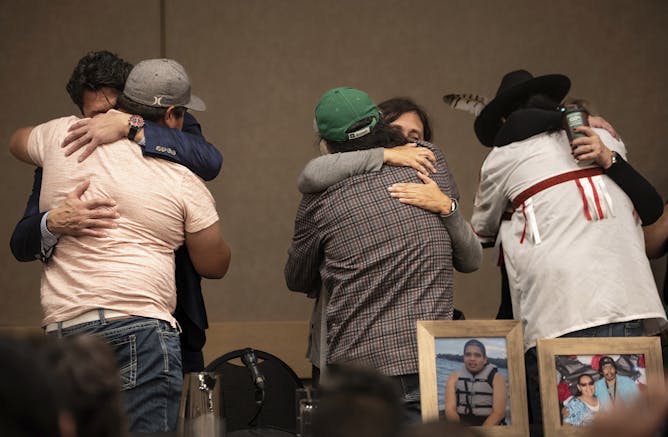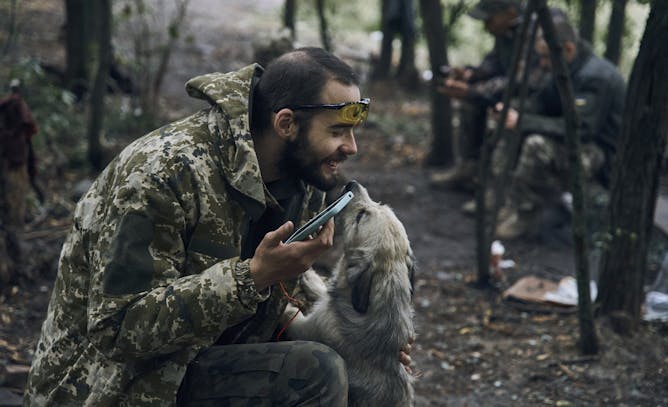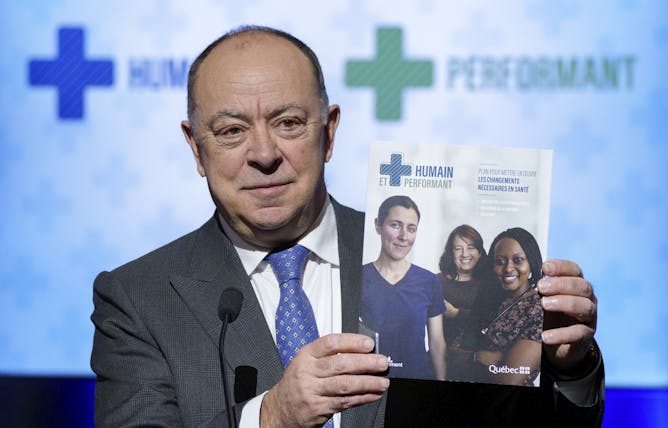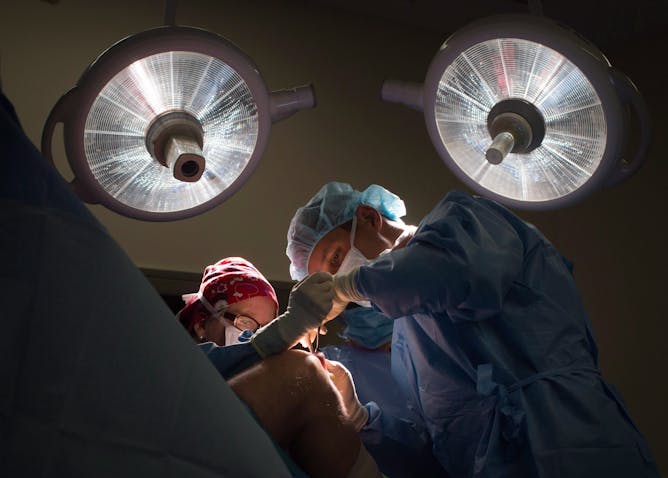|
The stabbings in Saskatchewan earlier this month have left an Indigenous community shaken by violence and many struggling to understand what could have motivated the attack.
On Sept. 4 Myles Sanderson stabbed several people in the James Smith Cree Nation and the nearby community of Weldon. The attacks left 10 dead and 18 others injured. Focus has turned to Myles Sanderson’s criminal record and why he was allowed to go free on statutory release from prison last year. Following the attack, questions were raised about the statutory release and the Parole Board of Canada said it will review its decision to release Sanderson.
Today in The Conversation Canada, Queen’s University professor Lisa Kerr and lawyer Amy Carter provide an analysis of Canada’s statutory release system. They argue that statutory release serves an important function and that it is far from certain that a different decision could have prevented the tragedy.
Also today:
|

Family of the victims of a series of stabbings on the James Smith Cree Nation reserve in Saskatchewan hug following a news conference in Saskatoon on Sept. 7.
(AP Photo/Robert Bumsted)
Lisa Kerr, Queen's University, Ontario
Myles Sanderson was given statutory release from prison prior to a stabbing rampage that left 10 people dead. But a legal expert says his case is unrepresentative of how people behave on this form of release.
|

A Ukrainian soldier plays with a dog as he has a rest in the freed territory in the Kharkiv region of Ukraine on Sept. 12, 2022. Ukrainian troops retook a wide swath of territory from Russia.
(AP Photo/Kostiantyn Liberov)
Alexander Hill, University of Calgary
Russian forces have clearly retreated in Ukraine, and it appears Vladimir Putin may be losing control of the war. What’s next?
|

Invasive alien species are a growing concern for both the environment and economy.
Shutterstock
Ismael Soto Almena, University of South Bohemia; Emma J. Hudgins, Carleton University
New research has found that since the mid-1980s, the economic impact of invasive reptiles and amphibians totals more than US$17 billion.
|

Western museums need to meaningfully come to terms with their colonial past and present to fulfil their role as places of knowledge.
(Shutterstock)
Umbrin Bukan, York University, Canada
Western museums are beginning to re-evaluate how they portray cultures and history and return stolen artifacts. But for change to be meaningful, it needs to be truly inclusive.
|

Le ministre de la Santé du Québec, Christian Dubé, brandit une copie du nouveau plan de soins de santé de la province lors d'une conférence de presse à Montréal, le 29 mars 2022.
LA PRESSE CANADIENNE/Paul Chiasson
Anne Plourde, York University, Canada
Les groupes de médecine de famille (GMF) ne parviennent pas à remplir les fonctions d’une première ligne efficace.
|

Une équipe médicale procède à une chirurgie du genou, à la clinique privée Cambie, à Vancouver. Elle est au coeur d'un recours judiciaire afin de faire invalider les dispositions d’une loi qui interdit certaines assurances privées.
La Presse Canadienne/Darryl Dyck
Marco Laverdière, Université de Sherbrooke
La Cour suprême pourrait avoir à décider s’il faut invalider l’interdiction de l’assurance privée et de la surfacturation pour les services médicaux en raison d’une atteinte aux droits fondamentaux.
|
Ukraine Invasion
|
-
Frank Ledwidge, University of Portsmouth
The success of Ukraine’s recent offensives have shown Ukraine can defeat Russia militarily, as long as it has sufficient support form the west.
|
|
Arts
|
-
Amos Ochieng, Makerere University
The four-day, non-stop dance party has been banned and unbanned twice in four years.
|
|
COVID-19
|
-
Manal Mohammed, University of Westminster
BA.4.6 seems to be even better at evading our immune response than BA.5.
|
|
Culture + Society
|
-
Calum Cunningham, University of Stirling; Jérémy Filet, Manchester Metropolitan University
There have been three before him, none of whom are exactly the model for a successful reign.
|
|